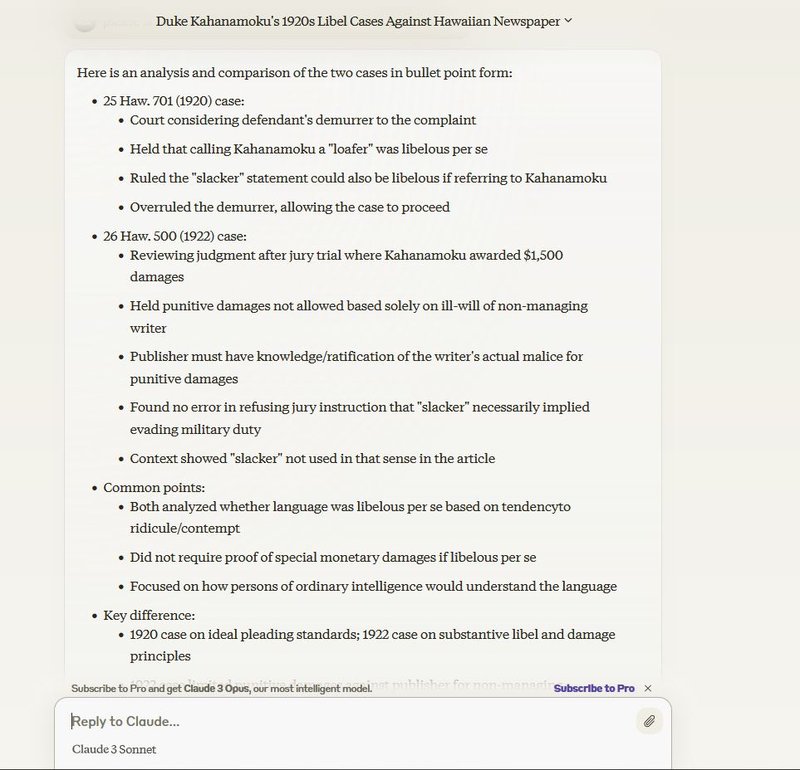March 2024: D'Angelo Law Library Emerging Technologies Update
Anthropic Releases Claude 3 Family of AI Models
On March 4, Anthropic—an AI company founded by several former OpenAI employees—released its newest generation of large language model. Anthropic claims that its newest model represents a significant advancement in AI capabilities, beating OpenAI ChatGPT and Google Gemini in benchmarks of several common tasks. One commentator has stated that Claude 3 “leaves OpenAI’s GPT-4 in the dust.”
Some commentators have reviewed Claude favorably for completing legal tasks. Sara Gotschall—law librarian and professor at the University of Arizona's James E. Rogers College of Law—has reported success using the paid version of Claude 3 to summarize articles and even generate a legal memorandum (although reasonable minds can differ about the quality of the legal analysis in the sample memo). John Tredennick and William Webber of Merlin Search Technologies have also reported success using Claude 3 to analyze documents like those that might be obtained in e-discovery.

The Claude 3 Sonnet model is available to use for free after registering an account. The more-advanced Opus model requires a $20/month subscription.
Guides to Prompt Engineering for Legal Applications
Well-designed user prompts can improve the efficiency, quality, and accuracy of the output from generative AI large language models. Below is a collection of guides providing tips on prompt engineering for tasks related to legal work.
Tracking AI Legislation
The Brennan Center for Justice has published an Artificial Intelligence Legislation Tracker that provides summaries of and links to bills introduced in the 118th Congress relating to artificial intelligence. Husch Blackwell has a similar tracker for state-level legislation.
Further Assistance
If you are interested in learning more about generative AI, including its use in legal research and education, please see our research guide on the subject, request a research consultation with a D'Angelo Law Librarian, or chat with us at Ask a Law Librarian.


